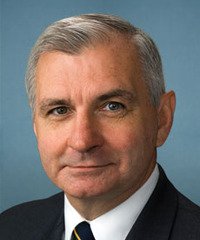
Jack Reed is a champion for middle-class families and a strong believer that all Americans should have the opportunity to build a better life.
Jack was born and raised in Cranston and grew up on Pontiac Avenue. His father, Joe, was a World War II veteran and Cranston school janitor who worked his way up to become custodial supervisor of the city's school system. His mother, Mary, was a homemaker who was unable to go to college herself, but made sure her three children studied hard and had the opportunity to pursue a higher education. The Reed family benefited from the GI Bill – a program that helped countless veterans further their education and put a roof over their heads – and Jack’s parents instilled in him the importance of serving his country and giving back to his community.
Strengthening Communities and Improving Public Safety
Senator Reed believes we must urgently reform and improve our justice system to ensure fairness, enhance public safety, and strengthen our diverse communities.
To improve public safety, Senator Reed has worked with cities and towns across the state to ensure their police departments have the staffing, training, and technology they need. Senator Reed supports the community policing model that fosters collaborative partnerships and builds trust between law enforcement and those they serve and protect. He believes transparency, accountability, and strong, independent oversight of police departments is essential, and that lawmakers – not just law enforcement officers – need to do more to tackle the root causes of neighborhood crime and poverty. It is essential that we address neglected priorities like affordable housing, substance abuse, education, mental health services, workforce development, and youth programs.
Ensuring a more just future also means prioritizing rehabilitation over mass incarceration. Today, the U.S. incarcerates its citizens more than any other country. Senator Reed supports the efforts in Rhode Island’s drug and veterans’ treatment courts, which offer a model where offenders are held accountable through frequent court appearances and rigorous programs and interventions that help provide cost-effective alternatives for protecting public safety and reducing recidivism.